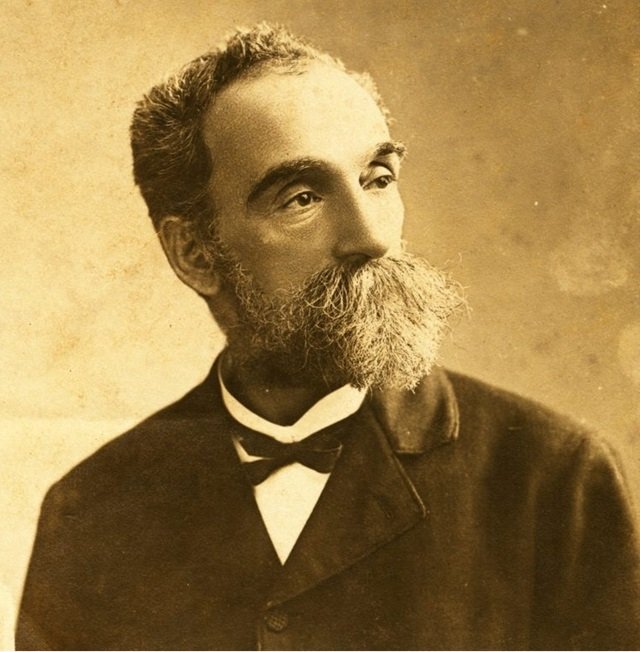Early Years
Arturo Alfonso Schomburg, born on January 24, 1874, in Santurce, Puerto Rico, emerged as a pivotal figure in the early 20th century, championing the recognition and preservation of African and African diaspora history and culture. His contributions laid the groundwork for what would become an enduring legacy in the realms of African American studies and library science.
Schomburg was born to a Puerto Rican mother of African descent, Mary Joseph, and a German father, Carlos Federico Schomburg. This biracial heritage positioned him uniquely at the intersection of multiple cultural identities. From an early age, Schomburg exhibited a voracious appetite for knowledge and an acute awareness of the cultural and historical gaps surrounding the contributions of people of African descent.
In 1891, at the age of 17, Schomburg moved to New York City, where he immersed himself in the vibrant community of African American intellectuals and activists. He found work as a printer and typographer, which helped him support his burgeoning interests in history and literature. This period also marked the beginning of his lifelong dedication to collecting and preserving artifacts, books, and documents related to the Black experience.
Schomburg’s passion for collecting was ignited by a teacher in his youth who claimed that Black people had no history, heroes, or accomplishments. Determined to prove otherwise, Schomburg set out on a mission to uncover and document the rich history and contributions of African peoples worldwide. His relentless pursuit led him to amass an extraordinary collection of books, manuscripts, prints, and other artifacts, which would later become a cornerstone of African American historical scholarship.
Harlem Renaissance
By the early 20th century, Schomburg had become an influential figure within the Harlem Renaissance, a cultural movement that celebrated Black artistic and intellectual achievements. He was an active member of several organizations, including the American Negro Academy, where he worked alongside other prominent Black intellectuals such as W.E.B. Du Bois and Carter G. Woodson. Through his involvement with these groups, Schomburg advocated for the recognition and inclusion of Black history in mainstream historical narratives.
In 1926, Schomburg’s efforts culminated in the publication of his seminal essay, “The Negro Digs Up His Past,” which underscored the importance of historical reclamation for African Americans. This essay resonated deeply within the Black community and beyond, emphasizing the necessity of self-discovery and cultural pride. Schomburg’s work not only challenged prevailing historical erasures but also inspired future generations of historians and scholars to continue the work of uncovering and celebrating Black history.
Schomburg’s legacy was further cemented when his vast personal collection was acquired by the New York Public Library in 1926, forming the basis of what is now the Schomburg Center for Research in Black Culture in Harlem. This acquisition ensured that his life’s work would be accessible to the public and preserved for future generations. As the center’s curator, Schomburg dedicated himself to expanding the collection and promoting the study of Black history and culture. Under his stewardship, the Schomburg Center grew to become one of the most important repositories of African and African American cultural materials in the world.
Educator and Mentor
Beyond his curatorial work, Schomburg was also an educator and mentor. He gave lectures and wrote extensively on the importance of Black history, aiming to empower individuals with the knowledge of their rich heritage. His influence extended to numerous young Black scholars, artists, and activists who drew inspiration from his dedication and passion.
Arturo Schomburg’s impact was not confined to the academic and cultural spheres. His work had profound social and political implications, challenging the systemic racism and discrimination that sought to marginalize Black people and their contributions. By highlighting the achievements and resilience of people of African descent, Schomburg played a crucial role in fostering a sense of pride and identity within the Black community.
Schomburg continued his work until his death on June 10, 1938. His legacy lives on through the Schomburg Center for Research in Black Culture, which remains a vital institution for the study and celebration of Black history and culture. His life’s work serves as a testament to the power of knowledge and the enduring importance of preserving and honoring the histories of marginalized communities.
In summary, Arturo Alfonso Schomburg was a visionary historian, collector, and activist whose tireless efforts to uncover and document the history of the African diaspora have left an indelible mark on the world. His legacy continues to inspire and inform, ensuring that the rich and diverse histories of Black people are recognized and celebrated for generations to come.




